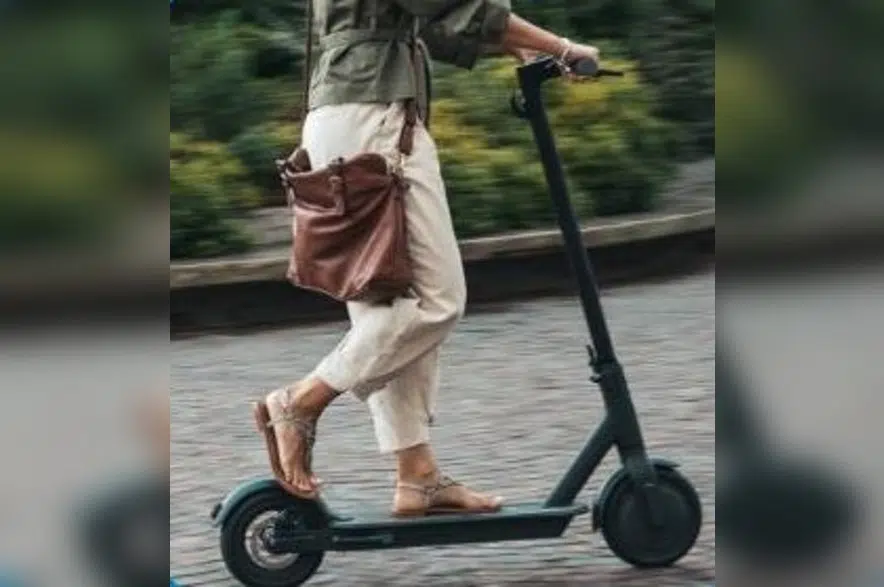There’s going to be a new double-axle adventure in Saskatoon late this spring.
At their meeting March 27, city councillors unanimously approved traffic bylaw changes to allow for publicly shared e-scooters to operate in the city. The provincial government changed its own regulatory framework in September of 2022 to allow municipalities to pass their own bylaws on where and when the scooters can be used.
According to City of Saskatoon senior transportation engineer Sheliza Kelts, the city is in the process of choosing two providers to manage and rent a maximum of 500 of the e-scooters.
E-scooters can’t be used anywhere, though. Kelts said there will be a host of rules accompanying their use, including a rule that riders must be over the age of 16 to use them.
“They must operate on shared-use pathways, cycle tracks (and) protected bike lanes, and where there is no path like that, they may ride on the streets with posted speed limits of 50 kilometres per hour or lower,” she said.
They won’t be allowed to operate on roads with speed limits over 50 km/h, skate or spray parks, or sidewalks. In fact, Kelts said the city is looking for an e-scooter operator that has specific “sidewalk riding detecting” technology.
“So if they get up on a sidewalk, the device slows down and stops and (the rider) can only push it,” she explained.
The devices will only be able to get up to 24 km/h, and on public paths like the Meewasin Trail, the speed limit will be 15 km/h. When the rider is done with their rental, the e-scooter can only be parked in designated areas, or in areas where cars can park — except for paid-parking spaces.
The cost to rent e-scooters is still up in the air, but Kelts said they’d cost less than a typical cab ride, but more than a bus pass. The vendors will also be asked to provide a fee option for low-income residents.
Riders will also be subject to all traffic rules, including impaired driving laws. In the evenings, Kelts said the riders who rent the e-scooters will have to go through some tests.
“They’ll have what’s called a cognitive test, and they’ll be rolling that out in the evenings. It would be intended to mitigate intoxicated rider usage. What you’d be asked to do is a type of hand-eye co-ordination game or something like that before you can unlock a shared e-scooter,” she said.
Personal e-scooters won’t be allowed on public property for some time yet. It’s expected that city council will consider the matter after the first year of the pilot project.
“This is a similar process we’ve seen mirrored in other municipalities that have completed their pilot shared e-scooter program,” said Kelts.
Anyone found violating parking or operational rules could get a fine of up to $50. Vendors can also be fined for not picking up equipment that’s not properly parked within one hour, or if city crews have to do that work, or impound the e-scooters for whatever reason.
Subject to weather conditions, publicly shared e-scooters will run from around May 15 to Oct. 31. Once the vendors are selected, there will be events where the public can come and try out the e-scooters.
“I would encourage people who are interested in the pilot and trying out these devices to do that and have safety top of mind when using them,” she said.











